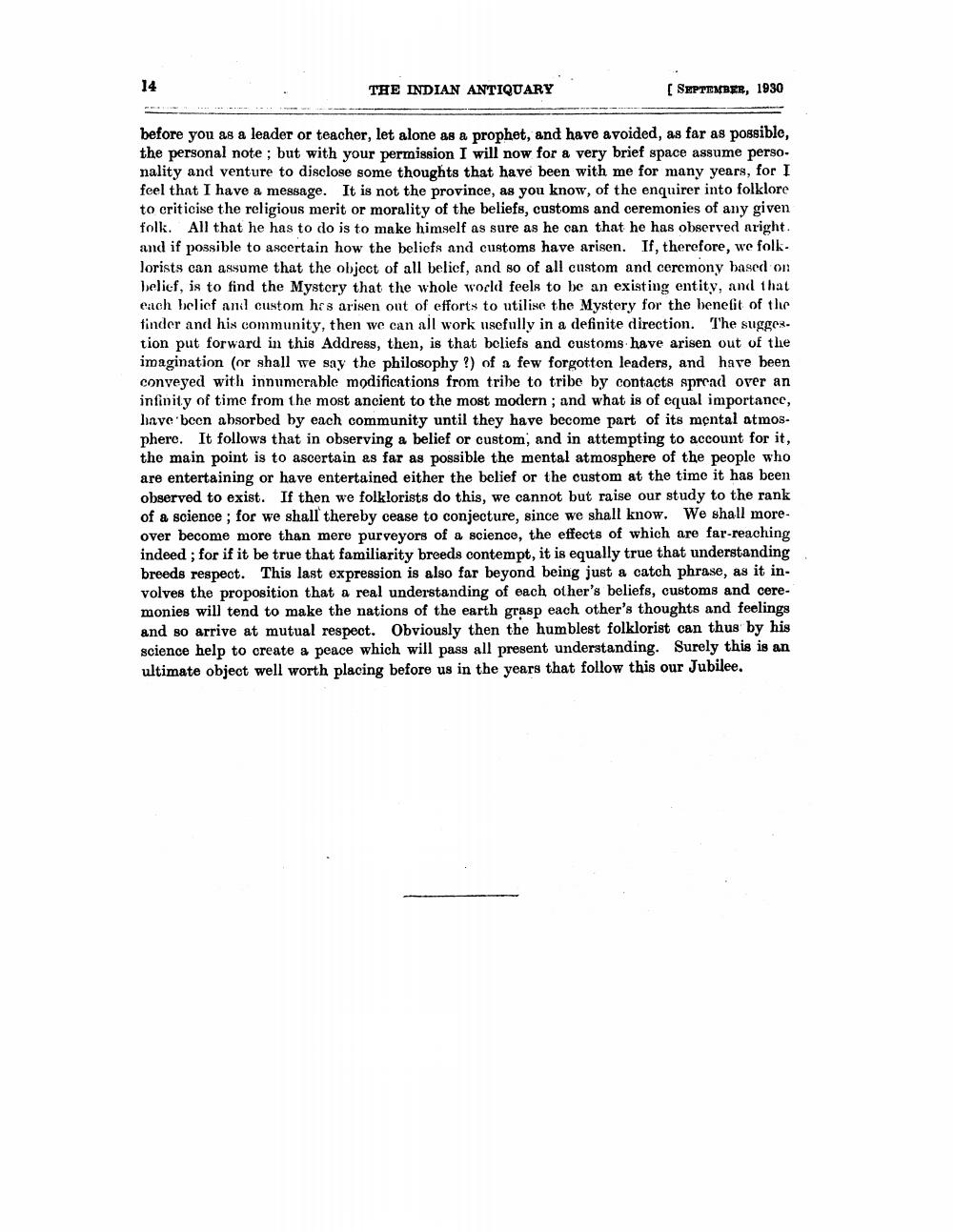________________
THE INDIAN ANTIQUARY
[ SEPTEMBER, 1930
before you as a leader or teacher, let alone as a prophet, and have avoided, as far as possible, the personal note; but with your permission I will now for a very brief space assume perso. nality and venture to disclose some thoughts that have been with me for many years, for I feel that I have a message. It is not the province, as you know, of the enquirer into folklore to criticise the religious merit or morality of the beliefs, customs and ceremonies of any given folk. All that he has to do is to make himself as sure as he can that he has observed aright. and if possible to ascertain how the beliefs and customs have arisen. If, therefore, we folklorists can assume that the object of all belief, and so of all custom and ceremony based on belief, is to find the Mystery that the whole woeld feels to be an existing entity, and that each belief anil custom hos arisen out of efforts to utilise the Mystery for the benefit of the finder and his community, then we can all work usefully in a definite direction. The sugges. tion put forward in this Address, then, is that beliefs and customs have arisen out of the imagination (or shall we say the philosophy ?) of a few forgotten leaders, and have been conveyed with innumerable modifications from tribe to tribe by contacts spread over an infinity of time from the most ancient to the most modern ; and what is of equal importance, have been absorbed by each community until they have become part of its mçntal atmosphere. It follows that in observing a belief or custom, and in attempting to account for it, the main point is to ascertain as far as possible the mental atmosphere of the people who are entertaining or have entertained either the belief or the custom at the time it has been observed to exist. If then we folklorists do this, we cannot but raise our study to the rank of a science; for we shall thereby cease to conjecture, since we shall know. We shall moreover become more than mere purveyors of a science, the effects of which are far-reaching indeed; for if it be true that familiarity breeds contempt, it is equally true that understanding breeds respect. This last expression is also far beyond being just a catch phrase, as it involves the proposition that a real understanding of each other's beliefs, customs and ceremonies will tend to make the nations of the earth grasp each other's thoughts and feelings and so arrive at mutual respect. Obviously then the humblest folklorist can thus by his science help to create a peace which will pass all present understanding. Surely this is an ultimate object well worth placing before us in the years that follow this our Jubilee.




